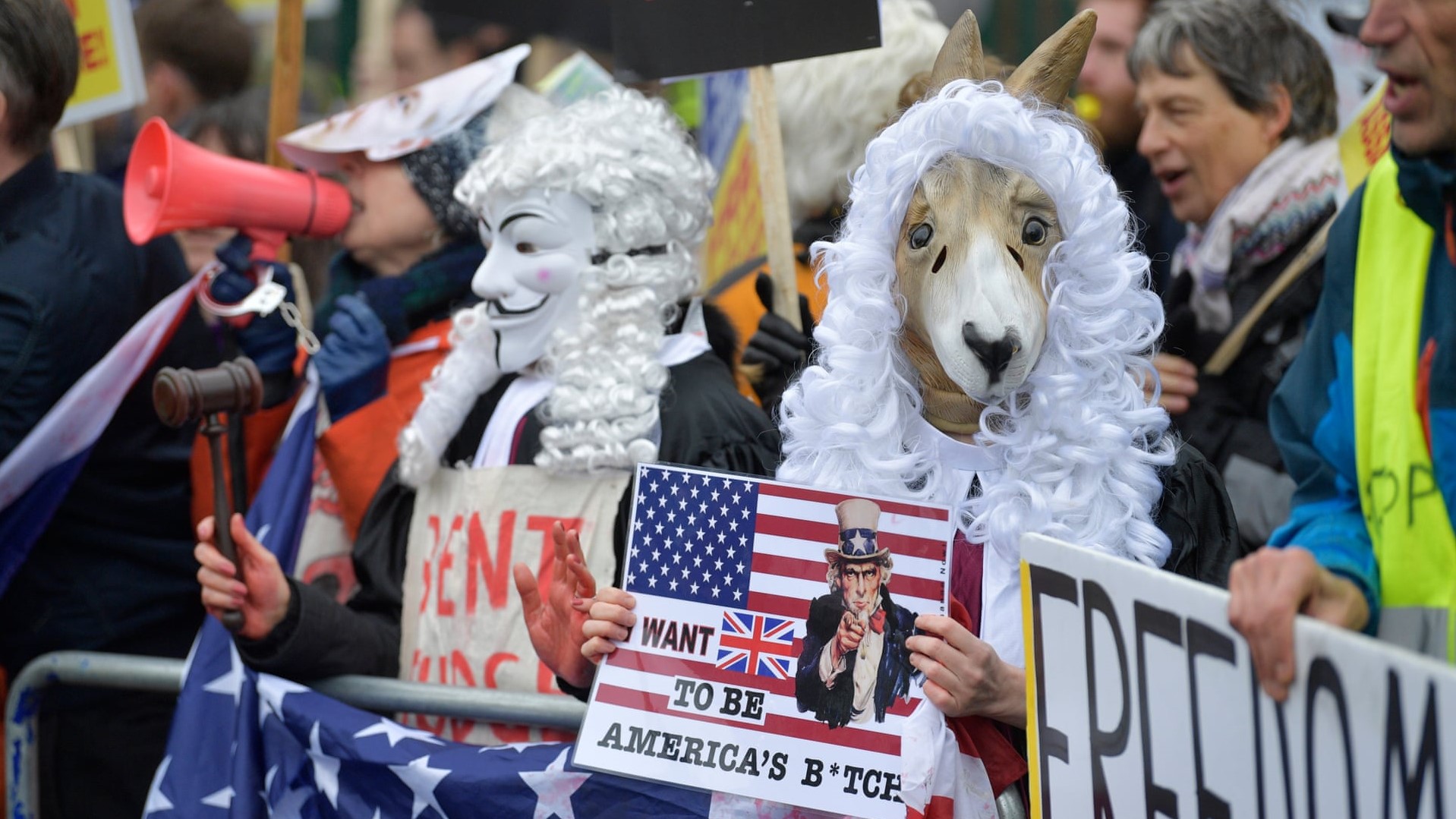Hundreds gathered in a massive show of support for Wikileaks founder Julian Assange as his extradition hearings began on February 24, Monday, at the high-security Belmarsh prison in the UK. The hearings are being held at the Woolwich Crown Court on the prison premises. Protesters demonstrated against attempts to extradite Assange to the United States to stand trial on charges of espionage.
As per reports, the protesters’ chants could be heard inside the courtroom. The judge had to several times send the court staff outside to speak with the protesters. The Guardian reported that the presiding judge, Vanessa Baraitser, once stated that she had difficulty hearing the case amidst the slogans and chants. The same was stated by Assange. “I understand and am very appreciative of the public support. I do understand they must be disgusted by these proceedings,” he told the judge.
The extradition trial has been a subject of major interest, especially after multiple reports raised concerns about possible torture and deprivation of medical care for Assange in prison. These have been penned down by independent journalists, a UN special rapporteur and a group of medical professionals from around the world.
The public gallery of the small courtroom was full during the hearing, with a group of 33 parliamentarians from across Europe organized as observers to the trial by the press freedom advocacy group, Bridge for Media Freedom.
The extradition attempt by the US has raised questions about the political nature of the process and the implications it holds for press freedom, especially for those publishers who may circulate leaked documents in public interest.
This was also reflected in the trial, with lawyers representing the US claiming that Assange was responsible for hacking into systems and releasing documents. The defense argued that the charges against him were politically motivated.
If extradited, Assange will stand trial in a federal prosecution case against him and Wikileaks on 18 charges under the Espionage Act and the Computer Fraud and Abuse Act, which together carry a maximum prison sentence of 175 years.





